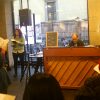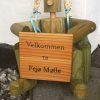Today Denmark celebrates Constitution Day. On this day, June the 5, in 1849 our most important law was signed by the king Frederik VII. Even the Constitution has been changed a handful of times since then, the basics remain. Celebration comes in many forms, but this blog likes a challenge – also a brainy one – so let’s go for the annual handing out of the Democracy Baton in the name of Danish debater Ebbe Kløvedahl Reich.
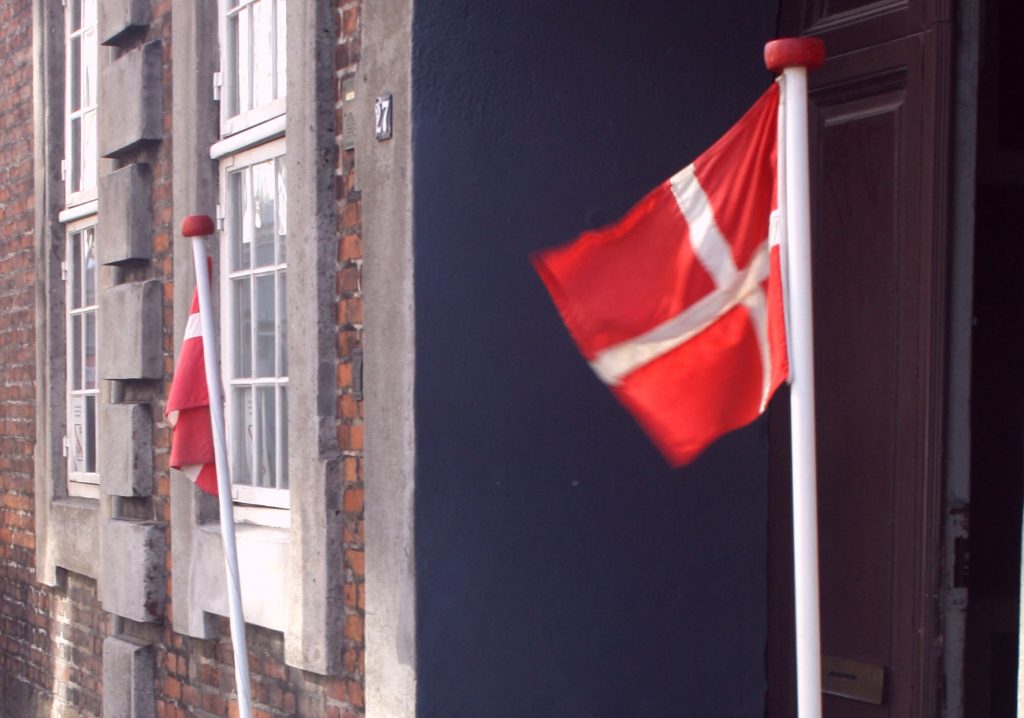
The baton has been handed over every Constitution Day for the past 14 years, and as usual it is hosted in a cooperation between The Democracy in Europe Organisation (DEO) and cultural house Vartov. About 200 seats are available for free in Vartov’s yard, but this year more people than ever before show up, so not everyone can be seated. However, the weather is still bright, sunny and enjoyable, so that’s all fine. And so is the homemade roll 🙂
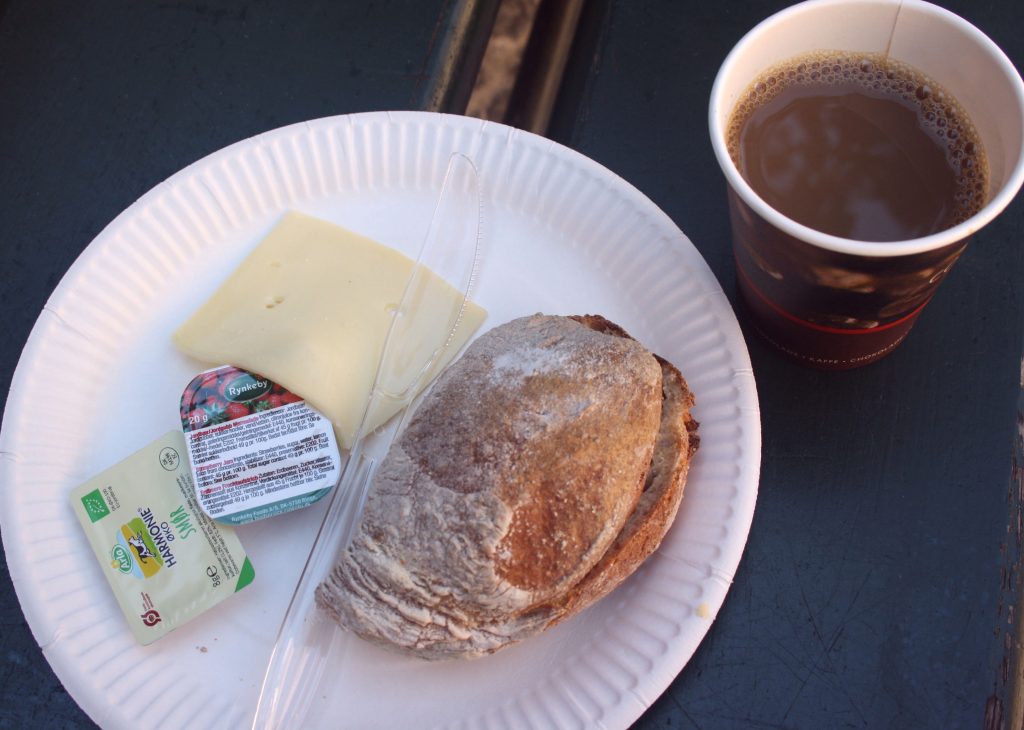
As tradition puts it, the event is opened with a song from the Danish Højskolesangbog (traditional lyrics). After the community singing, the first speaker is ready on stage.
This is journalist, author and debater Carsten Jensen who had the Democracy Baton back in 2010. Taking his starting point in the story about illegal immigrant Mamoudou Gassama who recently saved a 4-year-old child hanging from a balcony in Paris, he talks about fear. The equal fear of falling and the countdown to death that the child and the immigrant share. But also how Mamoudou Gassama is referred to as “spiderman”, climbing the wall to save the child. To make him less real to the rest of us, not least the European politicians who refuse to accept immigrants in Europe.
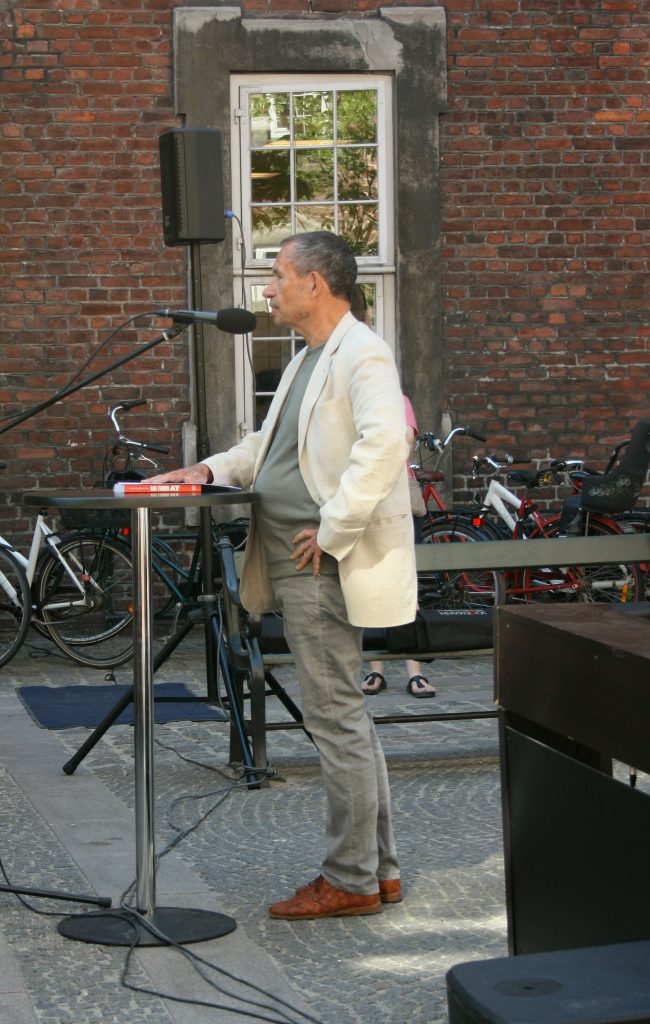
Perhaps without knowing it Carsten Jensen sets the theme for a lot of the speeches this day; the fear or unwillingness to get to know people from other countries, especially immigrants. Something which this year’s recipients of the Democracy Baton in the World Kitchen do everything to prevent (have a look further down the post).
Sometimes the speakers are interrupted by the noisy neighbour; the clocktower of Copenhagen City Hall. But that all works out with a little patience from everyone – which is also an important message from DEO.
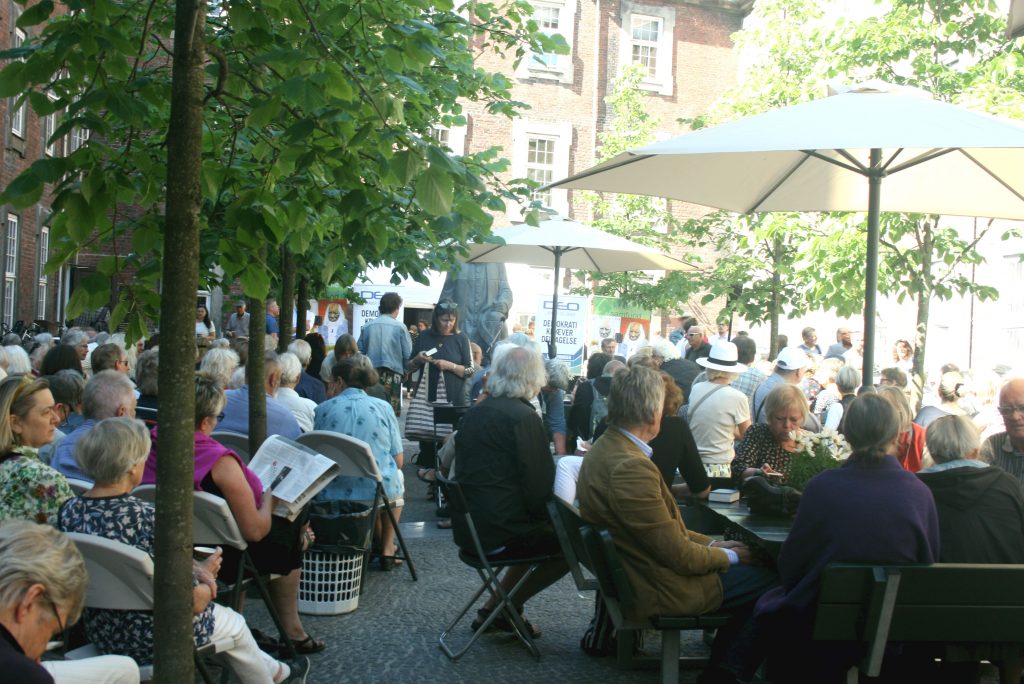
The signs by the stage say “Demokrati kræver deltagelse” (Democracy demands participation). This seems to be more true than ever nowadays when everyone seems too busy to participate in anything. Head of Secretariat in DEO, Rasmus Nørlem Sørensen, states that democracy is debating to agreement – or at least as close as you can get. But agreement takes a long time, whereas populism does not.
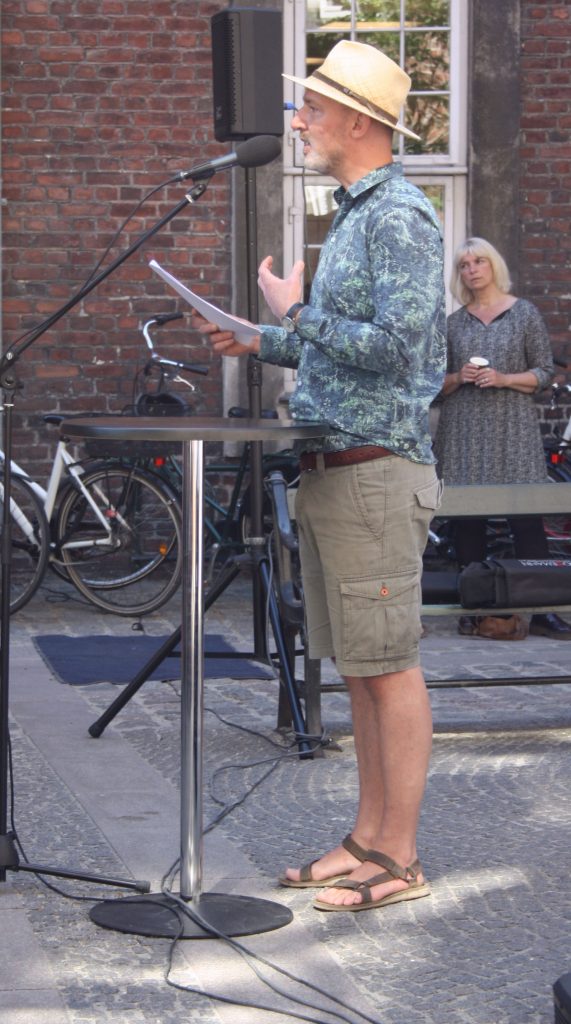
In our SoMe-feeds it is so easy to share the right opinions (even without reading the full article you link to!) or block the people you disagree with. Honestly, I have done both, even though as a journalist I should know better. However, I can just as honestly say that I have stopped sharing something I have not read – which is why you might get less sharings from me – and since I do not want my feeds to turn into boring echo chambers I have not blocked everyone for a very long time … Can you say the same? If not, you might take Rasmus Nørlem Sørensen’s words with you:
– Patience is a virtue in democracy. The trolls of the internet are trolls for a reason; find out why they speak like they do, and you might be able to convince them. After all, trolls do turn into stone when they are hit by sunlight.
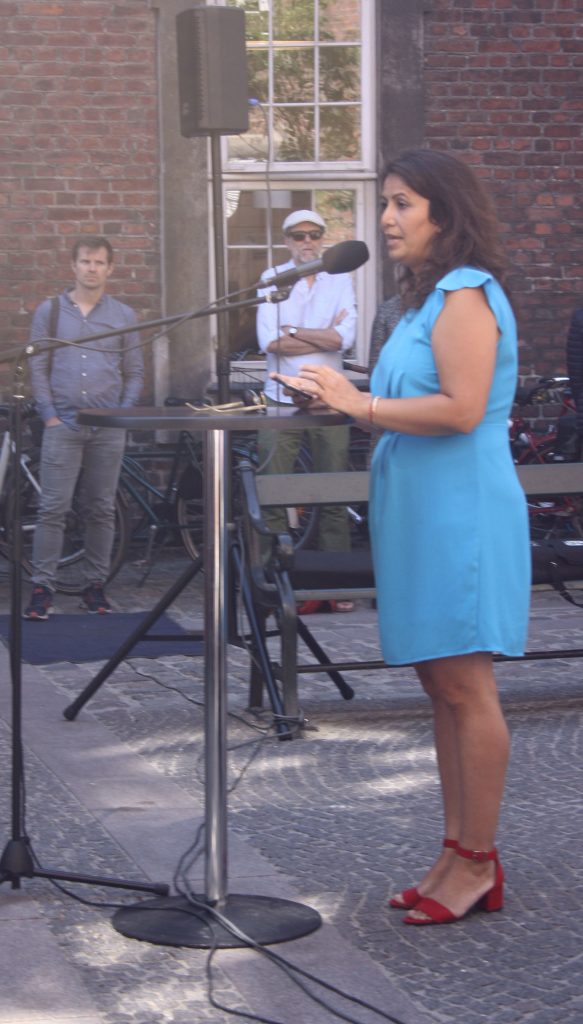
Someone who does dare to confront her trolls is the former politician and still-going-strong-debater Özlem Cekic. She has also recieved the Democracy Baton in 2016, and today she raises the flag for basic rights in the Constitution. The right to wear the clothes you like, eat what you like and when you like. Taking us back to her early childhood in Turkey she reminds us that this is the country in which most journalists are in prison, because the government believes they are a threat to the country’s security. Like some politicians seems to see Muslims as a threat to Denmark.
– In Turkey everyone knows that democracy is not a something you can take for granted, you must fight for it. That is why we can never have degrees of our basic Danish rights. The laws in the Constitution is equal for all, she says.
Özlem Cekic still has a strong voice, even though she left the Danish Parliament. Minutes after the above picture is taken a woman comes up to her and hands her a bunch of flowers with the words “I admire you so much”. Without hesitation Özlem repeays her fan with a big and warm hug.
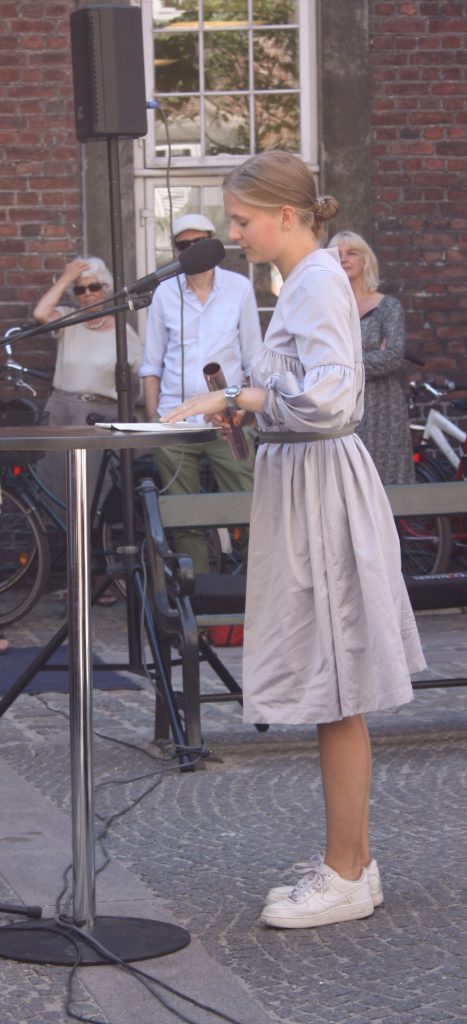
Finally, it is time for the Democracy Baton to find a new home. Last year’s recipient, feminist debater and sociologist Emma Holten, is ready to give it away. But not until she has scolded the Danish “hygge” (cosy atmosphere).
– 52 % of the Danish population say they do not believe in God. I think this is a lie. There is a God in Denmark, the God of the cosy atmosphere, which must not be disturbed, she says, before she shares the diary of English writer and feminist Mary Wollstonecraft who visited Denmark in 1796 and was struck by how happy the Danish people seem to be in their own smugness and comfort.
Luckily, today’s recipients of the Democracy Baton know better. In Emma Holten’s words they know that a stranger is just a very cosy person you have not met yet. And they know that curiosity is the greatest gift to all of us.
Ladies and gentlemen: The Democracy Baton 2018 goes to Anna Klitgaard and Catarina Bettencourt for their work in The World Kitchen.
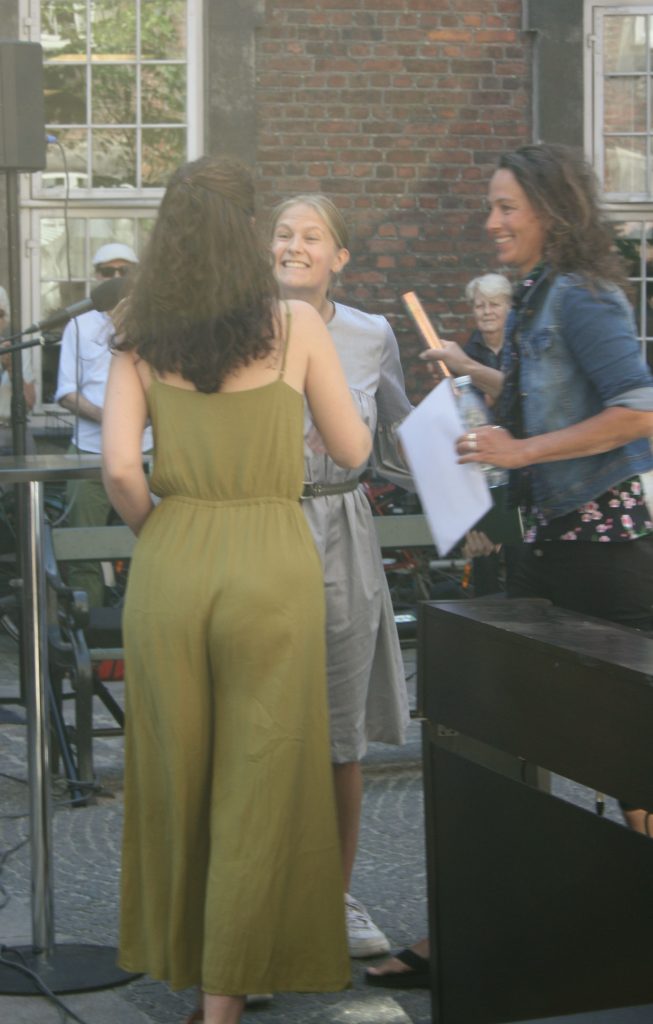
In cooperation with Folkekirkens Hus in Aalborg, the two cool ladies have created several successful events in which people of all cultures and languages meet and eat together. Their 3 main ingredients of the events are people, food and sharing of knowledge.
Since autumn 2016 they have invited to multicultural dinner parties in their local area, each with a theme. The first one was Syria, and with food, chain dancing and poetry it broke the ice between old and new neighbours in Aalborg, because everyone learned something about Syria they did not know from the current news coverage of war and refugees (this journalist also guilty as charged).
Anna Klitgaard and Catarina Bettencourt hope that people will be less shy towards each other, no matter their background or personal opinion. That is why they demand that everyone has to sit next to someone they do not know and not necessarily share language with at the dinner parties. And it does work – it is now rather difficult to stop the talking at tables again when they need to present the events’ entertainment at stage.
The entertainment might be fun, but also with a serious theme like feminism, human rights or biodiversity. And it is not without risk that the World Kitchen’s multicultural ambassadors from other countries perform on stage, even though it happens in Aalborg, far from what they might fled from.
Future events will be Colony Kitchen. Anna is from Denmark, and Catarina is from Portugal, so they want to host a kitchen to each of their countries and their (former) colonies. This might cause conflicts, but that does not scare either of them. They believe conflicts are not about winning but about listening to the other part and become wiser. Just like in democracy.
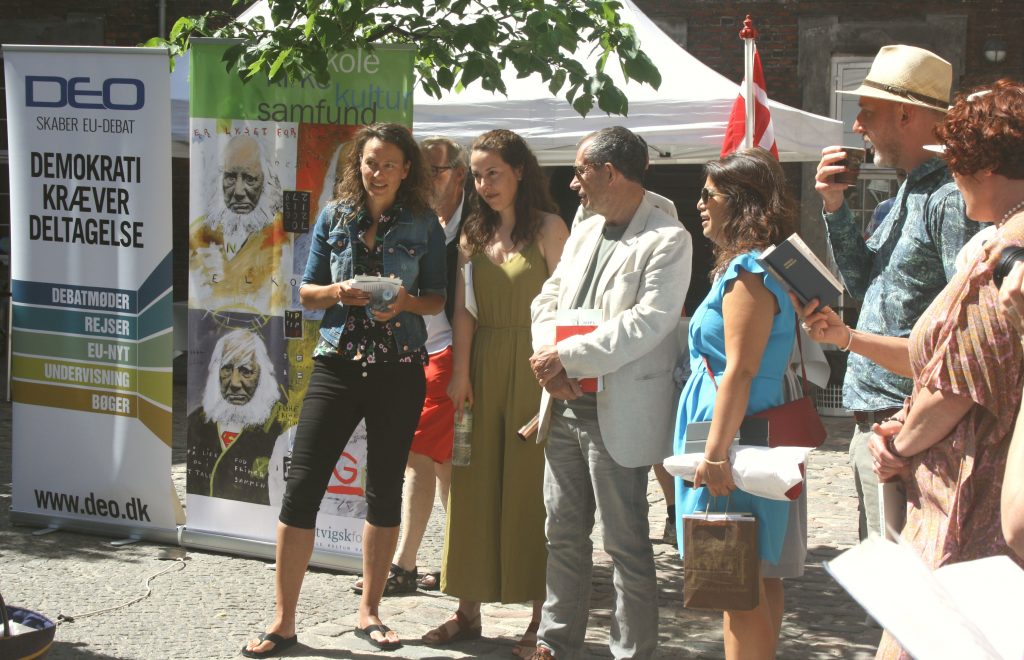
Find out more about The World Kitchen and future events on Facebook
… and while you are there. This guy just loves the Danish democracy (watch in case you have forgotten how lucky we are in Denmark):
